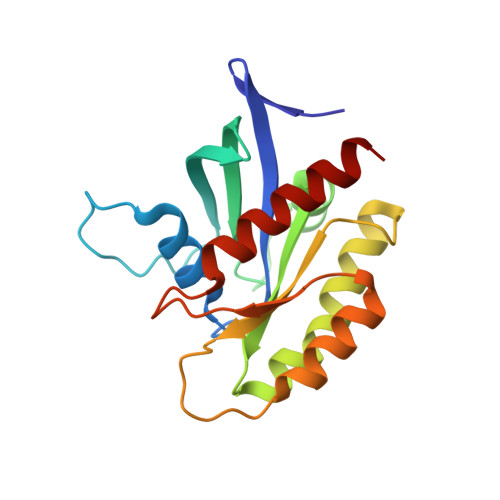Crystal Packing Reveals a Potential Autoinhibited KRAS Dimer Interface and a Strategy for Small-Molecule Inhibition of RAS Signaling.
Brenner, R.J., Landgraf, A.D., Bum-Erdene, K., Gonzalez-Gutierrez, G., Meroueh, S.O.(2023) Biochemistry 62: 3206-3213
- PubMed: 37938120
- DOI: https://doi.org/10.1021/acs.biochem.3c00378
- Primary Citation of Related Structures:
8FMI, 8FMJ, 8FMK - PubMed Abstract:
KRAS GTPases harbor oncogenic mutations in more than 25% of human tumors. KRAS is considered to be largely undruggable due to the lack of a suitable small-molecule binding site. Here, we report a unique crystal structure of His-tagged KRAS G12D that reveals a remarkable conformational change. The Switch I loop of one His-KRAS G12D structure extends into the Switch I/II pocket of another His-KRAS G12D in an adjacent unit cell to create an elaborate interface that is reminiscent of high-affinity protein-protein complexes. We explore the contributions of amino acids at this interface using alanine-scanning studies with alchemical free energy perturbation calculations based on explicit-solvent molecular dynamics simulations. Several interface amino acids were found to be hot spots as they contributed more than 1.5 kcal/mol to the protein-protein interaction. Computational analysis of the complex revealed the presence of two large binding pockets that possess physicochemical features typically found in pockets considered druggable. Small-molecule binding to these pockets may stabilize this autoinhibited structure of KRAS if it exists in cells to provide a new strategy to inhibit RAS signaling.
- Department of Biochemistry and Molecular Biology, Indiana University School of Medicine, Indianapolis, Indiana 46202, United States.
Organizational Affiliation:



















